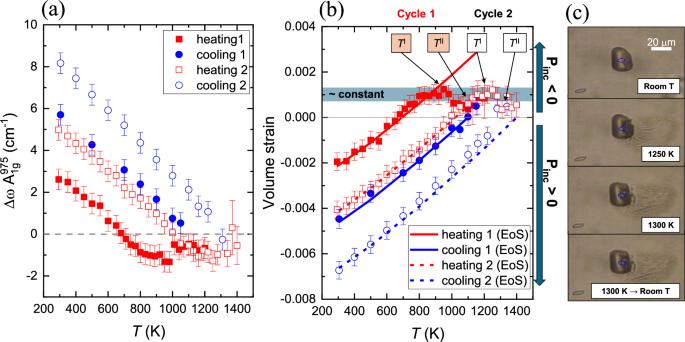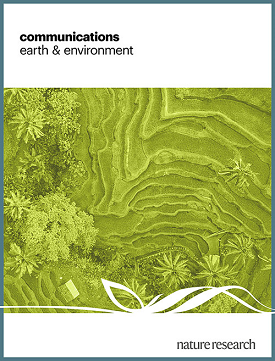矿物主包体系统是了解地球固态流变学的窗口
IF 8.9
1区 地球科学
Q1 ENVIRONMENTAL SCIENCES
引用次数: 0
摘要
地震、火山爆发和造山运动等自然过程受板块构造的控制,而板块构造又取决于岩石和矿物--地球固体的组成部分--在不同环境条件下如何变形。因此,成岩矿物的流变学是了解地球地球动力学的关键。我们目前对矿物流变学的了解主要来自实验室实验和基于简化化学合成系统的理论模型。然而,矿物特性在很大程度上取决于结构缺陷和杂质。因此,对天然复杂化学体系的解释需要不确定的推断。矿物包裹体是相对于其宿主的宏观缺陷,因此原位研究它们对其宿主矿物流变学的影响,为更好地了解矿物组合的流变学进而了解我们星球的动力学开辟了广阔的前景。在非环境条件下通过拉曼光谱研究矿物宿主-包裹体系统是探测地球内部原位变形过程的有效方法本文章由计算机程序翻译,如有差异,请以英文原文为准。

Mineral host inclusion systems are a window into the solid-state rheology of the Earth
Natural processes such as earthquakes, volcanism and orogenesis are controlled by plate tectonics which, in turn, depend on how rocks and minerals, the building blocks of Solid Earth, deform under different environmental conditions. The rheology of rock-forming minerals is therefore the key for understanding the geodynamics of our planet. Our present knowledge of mineral rheology mainly comes from laboratory experiments and theoretical models that are based on synthetic systems with simplified chemistry. However mineral properties strongly depend on structural defects and impurities. Therefore, the interpretation of natural chemically complex systems requires uncertain extrapolations. Mineral inclusions are macroscopic defects with respect to their host, so studying in situ their effects on the rheology of their host minerals opens a promising prospect for a better understanding of the rheology of mineral assemblages and thus the dynamics of our planet. The study of mineral host-inclusion systems by Raman spectroscopy at non-ambient conditions is an effective method to probe in situ deformational processes in the Earth’s interior
求助全文
通过发布文献求助,成功后即可免费获取论文全文。
去求助
来源期刊

Communications Earth & Environment
Earth and Planetary Sciences-General Earth and Planetary Sciences
CiteScore
8.60
自引率
2.50%
发文量
269
审稿时长
26 weeks
期刊介绍:
Communications Earth & Environment is an open access journal from Nature Portfolio publishing high-quality research, reviews and commentary in all areas of the Earth, environmental and planetary sciences. Research papers published by the journal represent significant advances that bring new insight to a specialized area in Earth science, planetary science or environmental science.
Communications Earth & Environment has a 2-year impact factor of 7.9 (2022 Journal Citation Reports®). Articles published in the journal in 2022 were downloaded 1,412,858 times. Median time from submission to the first editorial decision is 8 days.
 求助内容:
求助内容: 应助结果提醒方式:
应助结果提醒方式:


